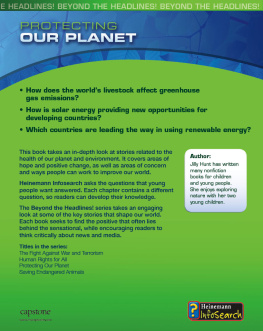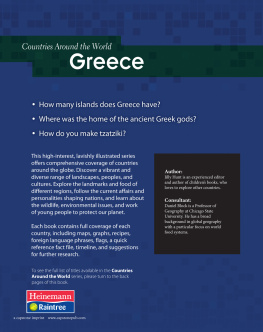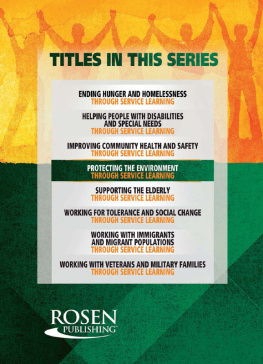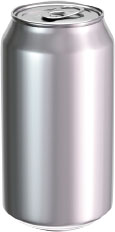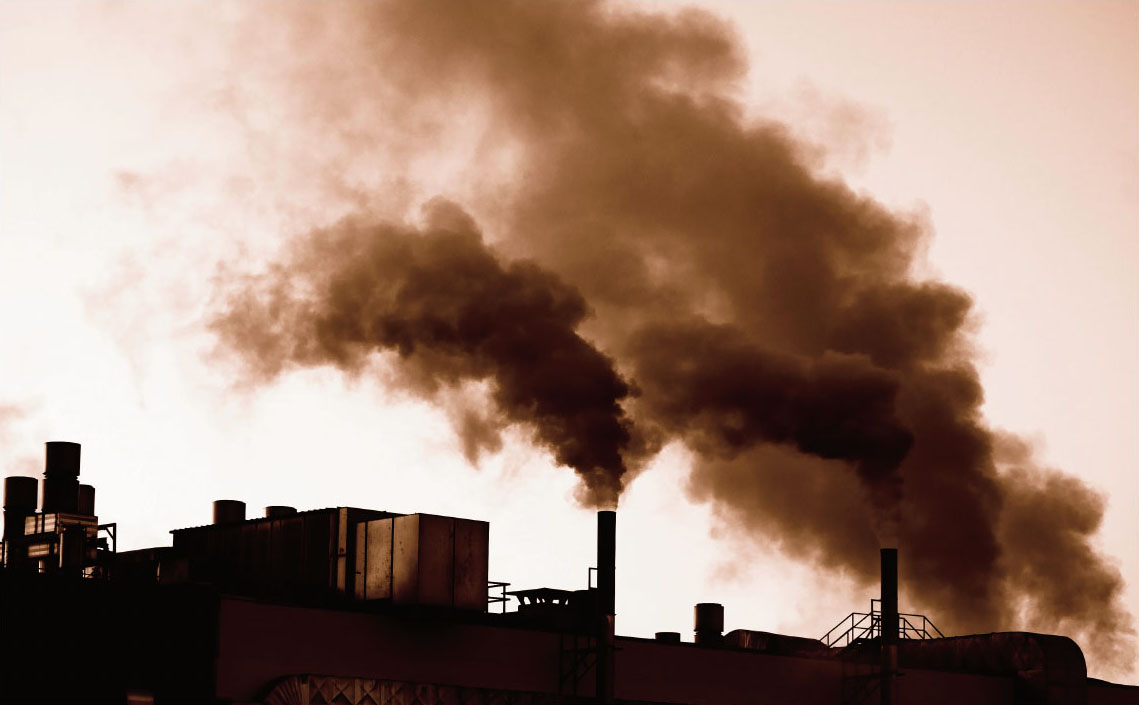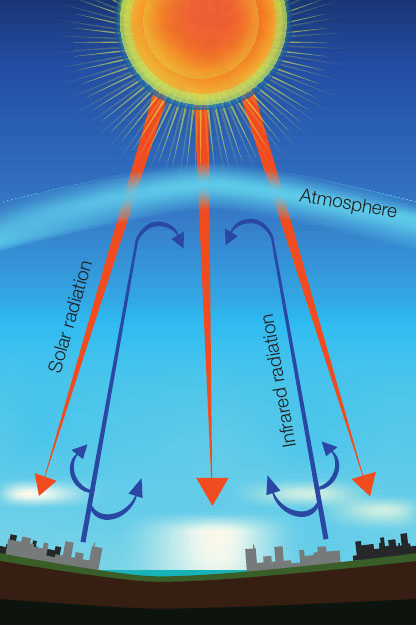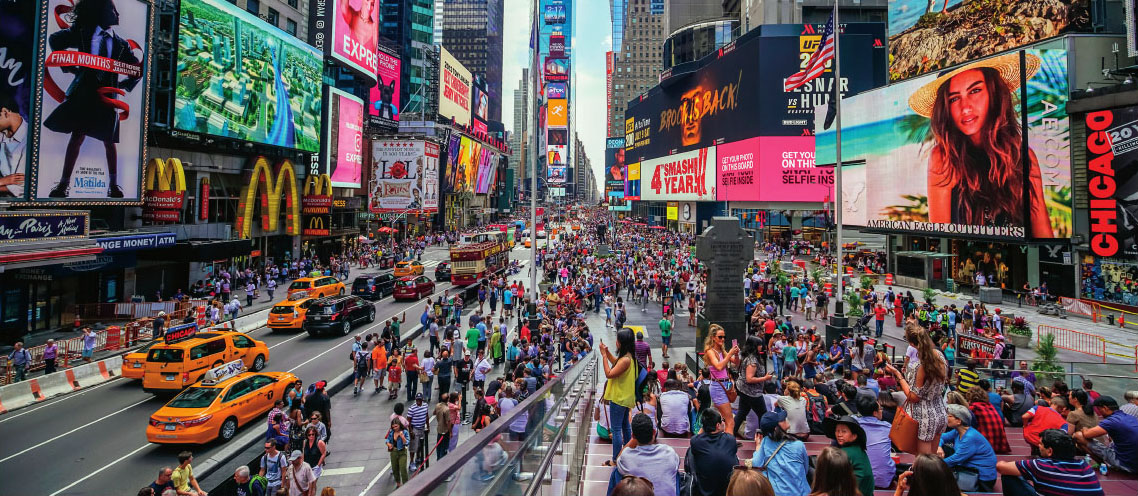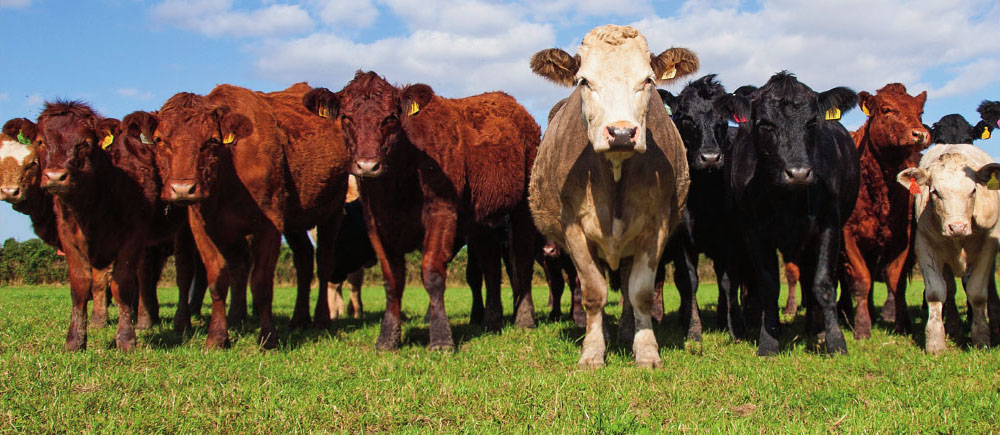Chapter 1
WHATS BEYOND THE HEADLINES ABOUT OUR ENVIRONMENT?
EXTREME WEATHER CAUSED BY GLOBAL WARMING
HUMANKIND UNABLE TO STOP RISING TEMPERATURES
ENVIRONMENTAL POLLUTION HITS RECORD HIGH
Weve all seen headlines like this about our environment. But how much do we really know about these issues?
The environment is the world around us. We often use the word to describe the natural world or our physical surroundings, especially when it is being affected by human activity. Environmental issues make the news because many people are concerned about the damage that human activity is doing. Scientists warn that some human activity, such as the burning of fossil fuels, is causing irreversible changes which will affect environments around the world forever.
DID YOU KNOW?
Aluminum is the most recyclable of all materials. Recycling just one aluminum can saves enough energy to power a TV for three hours.
Who Cares?
Different groups of people around the world are interested in environmental issues for different reasons. Governments are mostly interested in the environment in terms of the economic benefits that it can bring to their country. An example would be how a given nation might make money from selling its natural resources such as coal or oil. Governments must also consider the needs and wants of their people, and the money they have available. For example, they must consider the need for more houses if the countrys population is growing. Governments may have agencies that are dedicated to protecting a particular area of the environment, such as national parks or key wildlife areas.
The United Nations (UN) is a group of countries that try to work together to agree on rules to protect the world. They have an agency that focuses on the environment.
Non-Government Organizations (NGOs), such as Greenpeace or World Wide Fund for Nature, are concerned with how humans interact with the natural environment and the impact this has on the environment. They often governments to try to influence government decisions in favor of protecting the environment.
DID YOU KNOW?
The first UN conference about the environment was held in 1972. Issues that were discussed included protecting whales, chemical pollution, and atomic bomb testing.
A Brief History of Environmental Issues
We hear on the news about rising sea levels and and how human activity has caused it. How did this happen?
Human activity began to have a significant effect on the environment over 200 years ago with the start of the in England, which then spread to Europe and North America. The Industrial Revolution marked a change from a mainly agricultural way of life to a more industrial one. It began when fabric and clothing industries introduced the latest technological innovations, such as looms, to speed up the manufacturing process. Many of these innovations required power, which was often provided by steam engines fueled by coal.
The spread of industry through the world brought with it an increase in greenhouse gases and environmental pollution.
We know now that burning fossil fuels, such as coal, gas, or oil, causes pollution and releases harmful carbon dioxide (CO2) into the air. But at the time of the Industrial Revolution, there was a lack of knowledge about environmental impact. The advantages of industrialization seemed to be so great that no one was worried about what was happening to nature.
The Greenhouse Effect
The greenhouse effect is the way Earth stays warm. Energy from the sun is trapped by gases in Earths . Greenhouse gases stop this heat from escaping, which keeps Earth warm. The gases that trap the energy include methane and carbon dioxide. Scientists believe that human activity is increasing the amount of these greenhouse gases. The gases are then trapping more of the suns energy and causing our planet to heat up. A warming climate has many negative effects on the planet. Polar regions are especially vulnerable, as warmer temperatures can lead to melting glaciers and rising ocean levels around the world.
The Greenhouse Effect: Greenhouse gases absorb heat energy from the Sun, resulting in global warming.
DID YOU KNOW?
We need the greenhouse effect to keep Earth warm. Without it the average temperature would be 0F (18C).
A Growing Population
Industrialization has been accompanied by an increase in the worlds population. More people means more food is needed for them to eat, and more space is needed for them to live in. Providing this has caused environmental problems such as and pollution.
The increase in human population has led to increased pollution.
People have taken a more industrial approach to growing food, which has not always been good for the environment. For example, in the past, farmers used plants such as chrysanthemums or tobacco, which were toxic to insects or rodents but didnt harm the environment. However, after to stop crops from being eaten by pests. What people didnt yet realize was that these chemical pesticides were also killing other animals, especially birds and fish.
THINK ABOUT IT
Zhang lives in the Chinese city of Beijing and is a tennis coach. He can afford to buy meat but his life wasnt always so comfortable. As a child of rural farmers, he often went hungry.
Zhang eats meat every day now, but the global demand for meat is putting pressure on our environment. Should the amount of meat people can eat be restricted? Should everyone be allowed the same amount of food no matter where they live?
Intensive Farming
Animal farming also became more industrialized and intensive to try to produce more food, more cheaply and more quickly. In this kind of farming, livestock animals such as cows, pigs, sheep, and chickens are confined to small spaces in conditions that are not natural for them. Intensive livestock farming can cause pollution if animal waste contaminates water supplies. People also have concerns about the welfare of the animals.
DID YOU KNOW?
The worlds livestock are responsible for 18 percent of global greenhouse gas emissions.
Rearing cattle uses more water and creates more pollution than growing crops.
Changing Lifestyles
As lifestyles have changed, the demand for more processed, fast foods such as beef burgers has increased. Farming cattle takes more water than growing crops and cattle require more land on which to graze. Trees are cut down to make space to keep more cattle, which has a double impact on the environment. The trees that absorb harmful carbon dioxide are removed and replaced with animals that add to greenhouse gases.

